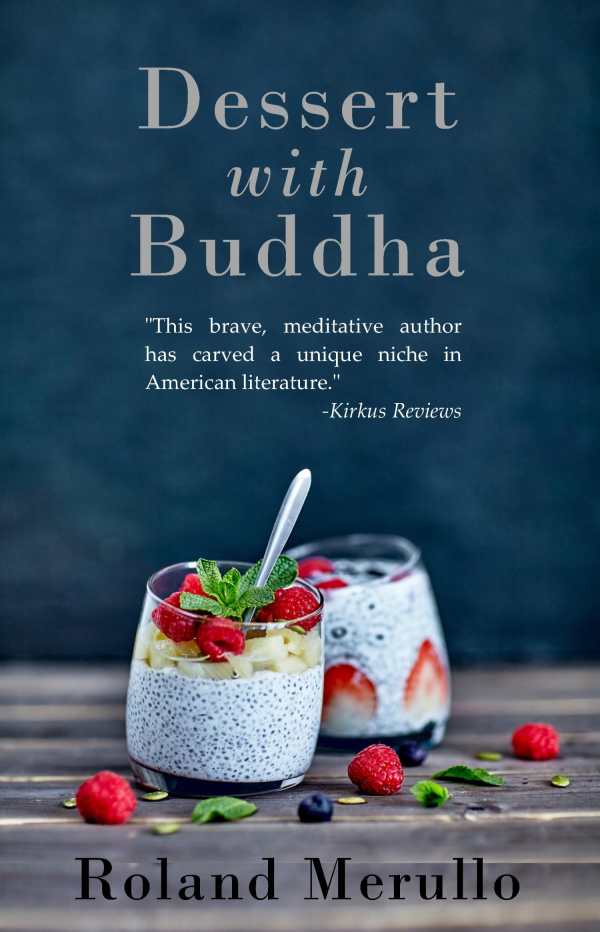Dessert with Buddha
A road trip is an opportunity for reflection in Dessert with Buddha, an allegorical novel in which brothers-in-law grow together.
In Roland Merullo’s novel Dessert with Buddha, brothers-in-law travel across the country, confronting spiritual and moral dilemmas while enjoying food and each other’s company.
Otto is at a late-life crossroads: his wife passed away years ago, his grown children have lives of their own, and he has money but nothing to do with it. He decides to move back to his childhood home in North Dakota. His sister and his brother-in-law, Rinpoche, have since turned the estate into a meditation retreat, but they welcome Otto’s return.
Then Rinpoche, a monk from Siberia who is known for his unshakable humility, decides to join Otto on his road trip. Their plan is to give money to deserving people as they go. They stop for meals and conversation, too, and find that opportunities for generosity are plentiful. Still, Otto wonders about the moral implications of their donations.
The book is written in the style of Otto’s reflective memoir. Still, though Otto’s move home begins the story, and though he narrates the tale and punctuates it with his family memories, Rinpoche is the book’s true hero in the end. He’s endearing and a beacon of optimism; he stumbles over his words, mixes up letters, and drops colloquialisms in his conversations, but is at all times compelling and gentle.
It is Rinpoche who guides Otto’s evolution, advising him as he struggles with his feelings of guilt over the past. Otto worries about, among other topics, how he raised his family and the uncertainty of his future. In response, Rinpoche is wise but unobtrusive: he gives Otto the space that he needs to self-reflect and contemplate.
Otto’s growth is quite gradual, though, and the book’s pace is languid as a result. Otto and Rinpoche take turns driving, picking restaurants, and being generous with others. Sensory details abound—many of them related to food, as with thoughts on how a brisket was prepared in a rush. But in the midst of the men’s contemplative travels, distractions arise, as with choices between meals that do not further the plot on the whole. Still, the men crawl toward their ultimate destination with a sense of serenity, knowing that they have to confront the future but choosing not to rush toward it.
Drawing contrasts between the past, future aspirations, and present realities, Dessert with Buddha is an allegorical novel in which brothers-in-law close an important chapter in both of their lives.
Reviewed by
John M. Murray
Disclosure: This article is not an endorsement, but a review. The publisher of this book provided free copies of the book and paid a small fee to have their book reviewed by a professional reviewer. Foreword Reviews and Clarion Reviews make no guarantee that the publisher will receive a positive review. Foreword Magazine, Inc. is disclosing this in accordance with the Federal Trade Commission’s 16 CFR, Part 255.

